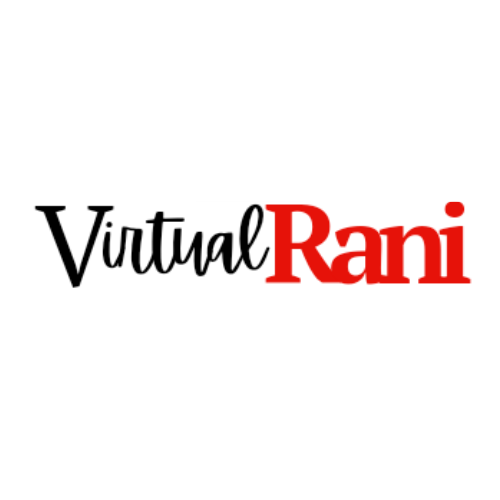Creating Your AI Twin: How to Scale Your Coaching Expertise Without Scaling Your Calendar
The most successful coaches and consultants are hitting an inevitable ceiling: there are only so many hours in a day, and only so many premium clients you can serve personally. But what if you could bottle your expertise and make it available to hundreds, or thousands, of people simultaneously?
Welcome to the era of AI-powered expertise productization, where top-tier coaches are creating "mini-me" AI versions of themselves to serve new markets and generate recurring revenue streams that complement their premium offerings.
The Strategic Shift: From Time-for-Money to Knowledge-as-a-Service
Traditional coaching follows a linear model: more clients means more time investment. But AI changes the game entirely. Instead of trading hours for dollars, you're now trading knowledge for scalable income.
Forward-thinking coaches are already building AI versions of their methodologies, transforming decades of expertise into accessible digital products. These AI coaches aren't replacing their premium services, they're creating new entry points and serving audiences who could never afford their $10,000+ programs.
The key insight? Your AI twin isn't competing with you; it's extending your reach into markets you physically cannot serve.
Architecting Your AI Expertise: What to Feed the Beast
Creating an effective AI version of yourself requires strategic curation of your intellectual property. Here's the content hierarchy that works:
Core Foundation Layer:
- Your signature frameworks and methodologies
- Case studies and client transformations (anonymized)
- Your proprietary assessment tools and diagnostic questions
- Frequently asked questions from years of client work
Personality and Voice Layer:
- Your speaking style and vocabulary patterns
- Your philosophical approaches and beliefs
- Your unique analogies and explanations
- Your coaching questions and conversation starters
Knowledge Base Layer:
- Relevant book summaries and insights you reference
- Industry-specific knowledge and trends
- Your published content, articles, and thought leadership
- Curated resources and recommendations you typically share
The magic happens when these layers combine to create an AI that coaches in your style, asks your questions, and guides users through your proven processes.
Revenue Models That Work: Pricing Your Digital Twin
The most successful AI expertise products use tiered pricing that creates clear value differentiation. Note that the following price ranges are examples and should be adjusted based on your market positioning, expertise level, and target audience:
Freemium Entry Point ($0-29/month): Basic access to your AI coach with limited interactions. This serves as a lead magnet for your premium services while providing genuine value to budget-conscious users.
Professional Tier ($97-297/month): Unlimited AI coaching sessions, access to your full framework library, and integration with goal-tracking tools. This is where most revenue typically concentrates.
Enterprise/Team Packages ($500-2,000/month): Multi-user access for organizations, plus admin dashboards and reporting features. Often includes occasional live group sessions with you.
VIP Integration ($1,000+/month): AI coaching combined with monthly calls with you, creating a hybrid model that commands premium pricing while leveraging AI for daily support.
Positioning Strategy: Complement, Don't Cannibalize
The biggest mistake coaches make is positioning their AI product as a cheaper alternative to their services. Instead, position it as preparation for working with you or ongoing support after working with you.
Pre-Work Positioning: "Before we work together in my intensive program, spend 30 days with my AI coach to clarify your goals and complete the foundational exercises."
Alumni Support Positioning: "Graduates of my program get lifetime access to my AI coach for ongoing accountability and quick answers between our quarterly check-ins."
Different Audience Positioning: "While my one-on-one coaching serves executives, my AI coach is designed for emerging leaders and individual contributors who need structured guidance."
This approach actually increases demand for your premium services by creating a pipeline of pre-qualified, pre-educated prospects.
Technical Implementation: From Concept to Launch
You don't need to be a tech wizard to create your AI coach. Several platforms now specialize in this exact use case:
Custom AI Platforms: Services like CustomGPT, ChatBotKit, or Botpress allow you to upload your content and create branded AI experiences without coding.
White-Label Solutions: Companies like CoachVantage and MindStudio offer coach-specific AI platforms with built-in payment processing and user management.
Hybrid Approaches: Some coaches use a combination of AI tools plus human oversight, creating a "coached AI" experience that feels more personal.
The key is starting simple and iterating based on user feedback rather than trying to build the perfect system from day one.
Content Strategy: Keeping Your AI Current and Engaging
Your AI twin is only as good as the knowledge it contains. Develop a systematic approach to keeping it current:
- Monthly content audits and updates based on user questions
- Seasonal refresh of industry trends and relevant insights
- Integration of new case studies and client success stories
- Regular review of conversation logs to identify knowledge gaps
Consider creating a content calendar specifically for your AI, treating it as a living product that evolves with your expertise.
Measuring Success: KPIs That Matter
Track metrics that align with your business goals:
Engagement Metrics:
- Session length and frequency
- User retention rates
- Most common question types
Business Metrics:
- Monthly recurring revenue growth
- Conversion rates to premium services
- Customer lifetime value
- Referral rates from AI users
Quality Metrics:
- User satisfaction scores
- Completion rates of AI-guided exercises
- Success stories and testimonials
The Competitive Advantage of First Movers
We're in the early adopter phase of AI expertise productization. Coaches who launch their AI twins now benefit from reduced competition, higher media attention, and the ability to refine their approach while others are still debating whether to start.
Your unique combination of expertise, personality, and client insights creates a defensible moat that generic AI tools cannot replicate. The question isn't whether AI will transform the coaching industry, it's whether you'll lead that transformation or be left behind by it.
Taking Action: Your 90-Day Launch Plan
Days 1-30: Content Audit and Preparation
- Catalog your existing IP and frameworks
- Identify your most frequently asked questions
- Document your coaching style and key phrases
- Choose your AI platform
Days 31-60: Development and Testing
- Upload and organize your content
- Test your AI with beta users (past clients work great)
- Refine responses based on feedback
- Develop your pricing and positioning strategy
Days 61-90: Launch and Iteration
- Soft launch to your email list
- Gather user feedback and testimonials
- Refine your marketing messaging
- Plan your scale-up strategy
Your expertise is already valuable. AI simply gives you a new way to package and deliver it at scale. The coaches who embrace this shift will lead the AI revolution.
The future of coaching isn't about choosing between human expertise and artificial intelligence. It's about combining both to create unprecedented value for clients while building sustainable, scalable businesses.
Your AI twin is waiting to be built. The only question is: when will you introduce it to the world?
© Virtual Rani 2025. The information contained herein is provided for information purposes only; the contents are not intended to amount to advice and you should not rely on any of the contents herein. We disclaim, to the full extent permissible by law, all liability and responsibility arising from any reliance placed on any of the contents herein.














































































































